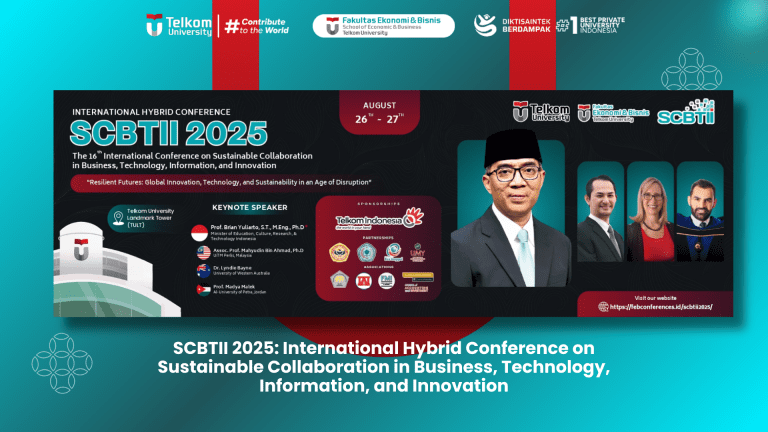Innovation and Management: The Importance of Adaptation to Technological Change
Technological developments are taking place at a rapid pace, and these changes are impacting all aspects of business management. To remain relevant and competitive, companies must be able to adapt to technological innovations that affect their operations, processes and strategies. This article will review the significance of adapting to technological change in management and how innovation can be a key factor in achieving business success.
Why is adaptation to technological change so important?
Rapid Technology Development:
- In today’s business era, technology is evolving at a rapid pace. Every industrial sector is now facing digital transformation, both in operations and in customer service.
- Innovations in artificial intelligence (AI), big data, cloud computing, and the Internet of Things (IoT) offer great opportunities to improve efficiency, reduce costs, and provide a more personalized customer experience.
Technology Risk Management:
- Technological change also brings challenges, such as reliance on new, untested technologies, cybersecurity risks, and possible job losses due to automation.
- Management needs to plan and anticipate these risks to keep the business stable while still capitalizing on innovation opportunities.
Need for Flexibility:
- A successful organization is one that is able to respond quickly to change. Flexibility in business operations and strategies, including the adoption of new technologies, is essential for companies to compete in the long term.
Strategies for Adapting to Technological Change
Investment in Research and Development (RD):
- One of the most effective ways to stay ahead of technological innovation is to invest in RD. Through continuous research, companies can identify new technology trends and formulate strategies to integrate them into their business.
Employee Training and Development:
- Although technology is constantly changing, human resources remain the most valuable asset for companies. Therefore, investing in employee training to master the latest technology is an important step to ensure business continuity.
Collaboration with Tech Startups:
- Adopting a collaborative approach with tech startups can give large companies the advantage of accessing the latest innovations without having to develop them from scratch. It also opens up opportunities for open innovation strategies, where creative ideas from outside the company can be integrated to improve existing products or services.
The Role of Telkom University’s Faculty of Economics and Business in Encouraging Technology Adaptation
Telkom University’s Faculty of Economics and Business (FEB Tel-U) is committed to preparing students to become business leaders who are able to adapt to technological changes. The faculty offers a well-rounded approach that combines modern management theory with the application of technology in practice.
- Curriculum that Emphasizes Technology and Innovation: FEB Tel-U provides study programs that focus on technology-based management, where students are taught how to utilize technological tools in business decision-making. Courses such as “Innovation Management” and “Technology in Business” provide students with an understanding of the importance of innovation in the face of technological change.
- Partnership and Collaboration Program with the Technology Sector: The faculty collaborates with major tech companies and startups to provide students with opportunities to engage in innovative projects. This collaboration ensures students gain practical experience on the application of technology in the business world.
Research and Innovation Center: Telkom University’s Faculty of Economics and Business is also committed to supporting innovation and technology-oriented research through its research center. Students are encouraged to participate in research that investigates the application of technologies such as artificial intelligence, big data, and the Internet of Things in addressing real business challenges.
Benefits of Adjusting to Technological Change in the Business World
Improved Operational Efficiency:
- By adopting the latest technologies, such as automation and real-time data analysis, companies can improve operational efficiency. Previously time-consuming processes can be streamlined with digital tools, allowing companies to focus more on product and service innovation.
Competitive Advantage:
- Companies that quickly adapt to new technologies often gain a competitive advantage. Technology allows them to provide a more personalized customer experience, faster service, and higher quality products.
New Market Opportunities:
- Through the adoption of technology, businesses can discover new markets that were previously unreachable. Technologies such as e-commerce, digital marketing, and mobile platforms allow small businesses to reach global customers at a lower cost compared to traditional marketing methods.
Summary
Adapting to technological change is now a must for any business that wants to remain competitive and relevant. By understanding technology trends and integrating them into management strategies, businesses can continue to innovate, improve efficiency and create value for customers. At Telkom University’s Faculty of Economics and Business, students are prepared to become future business leaders who not only understand management theory, but are also able to adapt to rapid technological change. Through education that focuses on innovation and collaboration with industry, FEB Tel-U plays an important role in creating a generation of entrepreneurs and managers who are ready to face the challenges of this digital era.




